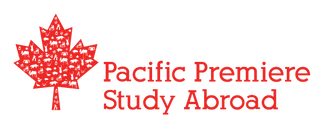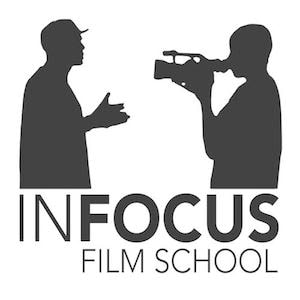โปรแกรม Visual Effects Diploma Program (43 สัปดาห์)
สถาบัน InFocus Film School
About InFocus Film School
สถาบัน InFocus Film School ก่อตั้งขึ้นเมื่อปี 2009 เป็นสถาบันสอนภาพยนตร์ที่ขึ้นชื่อ อีกทั้งราคาไม่แพง และติดอันดับเป็นสถาบันชั้นนำสาขาการภาพยนตร์ของเมืองแวนคูเวอร์ รวมไปถึงบรรยากาศในโรงเรียนที่เต็มไปด้วยนักเรียนในและต่างประเทศที่ทำให้การเรียนมีความหลากหลายและน่าตื่นเต้นมากยิ่งขึ้นซึ้งสะท้อนให้เห็นถึงคุณภาพและความกว้างไกลของภาพยนตร์ที่ผลิตออกมาอีกด้วย
Why choose InFocus Film School?
สถาบัน In Focus Film School เป็นสถาบันชั้นนำสาขาการภาพยนตร์ของเมืองแวนคูเวอร์ ซึ่งมีจุดประสงค์ที่จะพัฒนาการศึกษาในด้านภาพยนตร์ให้ยอดเยี่ยมด้วยการส่งต่อความรู้ให้นักเรียนในรูปแบบของการทำ Assignments ที่หลากหลายกันออกไป เพื่อที่จะขัดเกลาผลงานของนักเรียนให้ออกมาดีที่สุด ทางสถาบันจะเน้นการส่งเสริมให้นักเรียนฝึกการนำเสนอเรื่องราวออกมาด้วยภาพเพื่อที่นักเรียนจะได้นำวิสัยทัศน์และศิลปะส่วนบุคคลของตัวนักเรียนออกมาใช้ และเพื่อที่จะรักษาความสามารถในการคิดสร้างสรรค์ของนักเรียนแต่ละคนที่แตกต่างกันออกไป อีกทั้งทางสถาบันยังมีการเรียนการสอนที่แตกต่างและน่าสนใจอีกมากมายที่ไม่เหมือนใคร
Program Details
InFocus Film School’s Visual Effects Program prepares students for an exciting career in Vancouver’s burgeoning visual effects industry. Studios are looking for problem solvers–VFX artists who can go beyond button pushing to find solutions when facing tough or unique challenges. These are the skills InFocus will deliver.
- Small class sizes maximize individual attention
- All software and licenses included in cost
- All students receive their own MacBook Pro
- Learn from experienced industry professionals
Courses:
ระยะเวลาเรียน 43 สัปดาห์
2D Digital
In this course, students build a strong 2D digital imagery skillset, from retouching and basic textures to video editing essentials. Students learn to navigate Adobe Photoshop and Adobe Premier by flexing their abilities through hands-on projects. Students are taught colour theory and composition and introduced to a wide range of design concepts to develop their artistic eye. The strong knowledge base built in this course allows students to adapt to a variety of software applications that deal with still or moving imagery and compositing.
3D Rendering
3D Rendering covers the principle concepts of object rendering, focusing on a solid understanding of texturing and shading within Maya and Photoshop and how these are applied in the rendering process. Through a series of projects, students practice preparing and rendering 3D objects in Maya and Arnold.
Dynamics
This course covers the basics of working with dynamics effects in Maya. Students will be introduced to topics such as using paint effects, soft bodies and cloth simulations as well as producing small realistic fluids simulations.
Advanced 3D Lighting
This course trains students in advanced lighting techniques, realistic rendering of 3D objects, and lighting with Arnold for Maya. Students develop their skills through projects designed for high-level rendering techniques, such as physical rendering, particle rendering, using Arnold shaders, and handling complex geometry.
Advanced Dynamics
This course covers advanced dynamics effects in Maya and teaches students both rigid body simulations and particle simulations. Students spend most of the course working towards executing the dynamic effects required for the final project.
3D Imagery
3D artists create everything from set extensions to moulded and rigged characters. In this course, students delve into the fundamentals of 3D digital imagery: modelling, scene assembly, object manipulation, camera navigation, and 3D animation. Students become familiar with 3D software for modelling, animation, and rendering. They gain practical experience with a wide range of techniques and tools in Autodesk and Maya. The course also demonstrates the possibilities of 3D software, including dynamics, advanced rendering, rigging, muscle systems, and programming.
Compositing
The most mind-blowing cinematic sequences are often a combination of many elements layered together into a seamless experience. This combination is known as compositing. This course will teach the basics of compositing in The Foundry Nuke. Students will learn topics such as importing footage into Nuke, making new compositions, assembling different layers, and superimposing layers against each other. Students will also learn the basics of keying and objects tracking. By the end of this course, students should have an intermediate understanding of how video compositing software works as well the understanding of the different tools and features of Nuke for assembling composited shots.
Scripting for 3D Imagery
In this course, students study scripting for 3D Imagery in Maya. Using Python as their primary programming language, students begin with the basics of programming and expand their repertoire with more advanced skills, such as building custom tools and simplifying repetitious tasks.
Advanced Compositing
In Advanced Compositing, students learn how to handle particles, re-lighting, camera projection, depth depositing, and scripting in Nuke, the digital compositing software. Through extensive practical application, students hone their compositing skills.
Final Project
The final term takes students through the studio process of developing visual effects shots, from the earliest stages of ideas on paper to the final composited shot. Students must employ all their acquired knowledge to advance the project through the production pipeline.
Under the guidance of their instructors, students work in a simulated studio environment to develop a concept to produce over the term. VFX students first work with Film Production Program students to procure the necessary live footage, then work on the 3D elements of their shots and finally composite them into the clean plates of live footage and polish the project to a professional standard.
2D Digital
In this course, students build a strong 2D digital imagery skillset, from retouching and basic textures to video editing essentials. Students learn to navigate Adobe Photoshop and Adobe Premier by flexing their abilities through hands-on projects. Students are taught colour theory and composition and introduced to a wide range of design concepts to develop their artistic eye. The strong knowledge base built in this course allows students to adapt to a variety of software applications that deal with still or moving imagery and compositing.
3D Rendering
3D Rendering covers the principle concepts of object rendering, focusing on a solid understanding of texturing and shading within Maya and Photoshop and how these are applied in the rendering process. Through a series of projects, students practice preparing and rendering 3D objects in Maya and Arnold.
Dynamics
This course covers the basics of working with dynamics effects in Maya. Students will be introduced to topics such as using paint effects, soft bodies and cloth simulations as well as producing small realistic fluids simulations.
Advanced 3D Lighting
This course trains students in advanced lighting techniques, realistic rendering of 3D objects, and lighting with Arnold for Maya. Students develop their skills through projects designed for high-level rendering techniques, such as physical rendering, particle rendering, using Arnold shaders, and handling complex geometry.
Advanced Dynamics
This course covers advanced dynamics effects in Maya and teaches students both rigid body simulations and particle simulations. Students spend most of the course working towards executing the dynamic effects required for the final project.
3D Imagery
3D artists create everything from set extensions to moulded and rigged characters. In this course, students delve into the fundamentals of 3D digital imagery: modelling, scene assembly, object manipulation, camera navigation, and 3D animation. Students become familiar with 3D software for modelling, animation, and rendering. They gain practical experience with a wide range of techniques and tools in Autodesk and Maya. The course also demonstrates the possibilities of 3D software, including dynamics, advanced rendering, rigging, muscle systems, and programming.
Compositing
The most mind-blowing cinematic sequences are often a combination of many elements layered together into a seamless experience. This combination is known as compositing. This course will teach the basics of compositing in The Foundry Nuke. Students will learn topics such as importing footage into Nuke, making new compositions, assembling different layers, and superimposing layers against each other. Students will also learn the basics of keying and objects tracking. By the end of this course, students should have an intermediate understanding of how video compositing software works as well the understanding of the different tools and features of Nuke for assembling composited shots.
Scripting for 3D Imagery
In this course, students study scripting for 3D Imagery in Maya. Using Python as their primary programming language, students begin with the basics of programming and expand their repertoire with more advanced skills, such as building custom tools and simplifying repetitious tasks.
Advanced Compositing
In Advanced Compositing, students learn how to handle particles, re-lighting, camera projection, depth depositing, and scripting in Nuke, the digital compositing software. Through extensive practical application, students hone their compositing skills.
Final Project
The final term takes students through the studio process of developing visual effects shots, from the earliest stages of ideas on paper to the final composited shot. Students must employ all their acquired knowledge to advance the project through the production pipeline.
Under the guidance of their instructors, students work in a simulated studio environment to develop a concept to produce over the term. VFX students first work with Film Production Program students to procure the necessary live footage, then work on the 3D elements of their shots and finally composite them into the clean plates of live footage and polish the project to a professional standard.
Admission Requirements:
- TOEFL score of 68 internet based (ibT) or 520 paper based (PBT)
- TOEIC score of 700
- Cambridge ACE completion of any level, or First Certificate in English (FCE) Grade C
- IELTS Band 6.0
- สามารถเรียนโปรแกรมภาษาแทนการยื่นคะแนนภาษาได้ค่ะ
Tuition Fees
สำหรับน้อง ๆ ที่สนใจโปรแกรมนี้ สามารถกรอกแบบฟอร์มสอบถามด้านล่างเพื่อสอบถามข้อมูลเพิ่มเติมและค่าเรียนได้ค่ะ
สำหรับน้อง ๆ ที่สนใจโปรแกรมนี้ สามารถกรอกแบบฟอร์มสอบถามด้านล่างเพื่อสอบถามข้อมูลเพิ่มเติมและค่าเรียนได้ค่ะ
Contact Us
สนใจข้อมูลเพิ่มเติม สามารถสอบถามได้ที่ (085) 658-7000 (สาขากรุงเทพฯ) และ (778) 995-4763 (สาขาแวนคูเวอร์) ค่ะ

